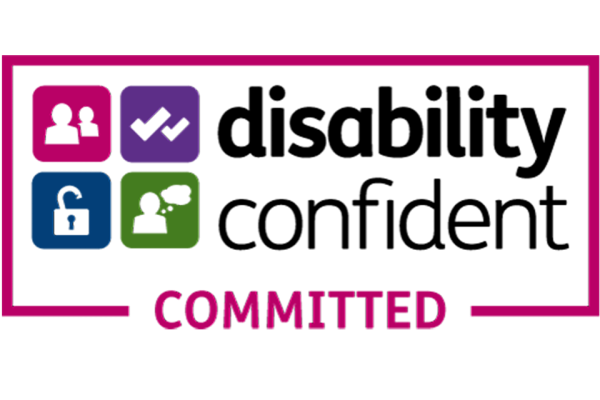
Not all career paths are paved equally
Why is BTO certified Disability Confident Committed? Jenna Woodford, BTO's Social Media Officer, reflects on their experience as an applicant and as an employee.
If you’ve visited our job adverts and vacancies page recently, you may have noticed this message: ‘As users of the Disability Confident scheme, we guarantee to interview all disabled applicants who meet the minimum criteria for the vacancy.’ We’ve had quite a few questions about the scheme on our social media channels, so this blog aims to answer those questions and share my personal experience of using the scheme as both a job applicant and now an employee.
What is the Disability Confident Employer Scheme?
BTO has been certified Disability Confident Committed as part of the UK Government’s Disability Confident employer scheme since 2019. The scheme guarantees an interview for applicants with a disability who opt in* to the scheme when they apply for a role, as long as they meet the minimum essential criteria for the role (depending on the number of applicants, not everyone who meets the essential criteria would necessarily be shortlisted for interview). This is just one of the steps BTO takes to ensure the hiring process is accessible, including using an application system that allows unbiased recruitment (hiring managers do not see names or other personal details when shortlisting who to interview) and having an equivalent scheme for people of minority ethnic backgrounds. These measures are all examples of positive action to increase diversity in the workplace.
*To opt in, an applicant doesn't need to provide details of their disability - they are just asked one question: ‘Do you consider yourself to have a disability as defined in the Equality Act (2010)?’

Why is the Disability Confident Employer Scheme Needed?
Many of us have experienced barriers to employment in the conservation sector, but I’m often asked by those who haven’t why such a scheme is necessary. Conservation is one of the least diverse sectors in the UK - we see this reflected in the demographics visiting nature reserves and the wider countryside as well as in those employed in the sector. The barriers to employment for disabled people are many, including employment gaps due to ill health, inaccessibility of education and certain courses (either physical accessibility or financial - on average, disabled people in the UK face extra costs of £583 a month), difficulties with completing application forms or expressing oneself in writing, and subconscious or institutional biases. The Disability Confident scheme can’t solve them all; many barriers take effect before people even leave school, making it difficult for them to reach the minimum criteria for roles and be eligible for the scheme - which is where BTO’s youth engagement and other outreach work comes in. But the scheme is a vote of confidence for disabled job seekers and young people looking to start a career in conservation, and demonstrates that BTO is aware of the additional struggles we face and will support us.
Using the Disability Confident Employer Scheme as an Applicant
I had a few reservations about ticking the box on my application form to disclose that I am disabled. Firstly, there was the internal doubting voice saying ‘am I disabled enough?’. I’m autistic and also have a physical health condition, but both of these were only diagnosed in the last couple of years (a whole other topic…). There is a journey of self-acceptance and battle to overcome the ableism we internalise from society over the years associated with that, which I think all disabled people go through at different stages, and it’s an ongoing journey. So, ticking the box can be a big thing for some people as it is an acceptance that, yes, I am eligible for this support. Disclosing a disability also requires a lot of trust and confidence in the employer, because we open ourselves up to discrimination and bias as soon as we do.
BTO's Equality, Diversity and Inclusion Statement
Our CEO Juliet explains why EDI is a vital part of BTO.
Read the statementBut I ticked the box, and my experience of the scheme and BTO’s hiring process was nothing but positive from there onwards. I was offered an interview and the opportunity to let the People team know about any reasonable adjustments I would require to attend. For me, this was a remote interview and a note to let the interviewers know that my lack of eye-contact and possible misinterpretation of questions would be due to my autism (not rudeness or inattentiveness!).
The Disability Confident scheme ends at the interview stage, but BTO’s commitment to inclusivity does not! From the moment I was offered the job, and throughout my first couple of months in the role to now, I have been supported to do my job in the way that I work best and been welcomed as part of the team. I hope this blog gives more disabled people the confidence to apply to join our lovely team.
Happy Disability Pride Month everyone!







Share this page